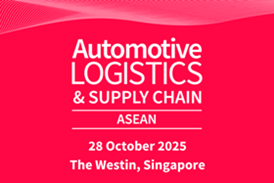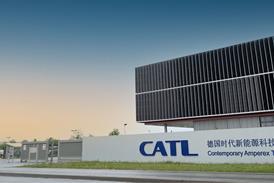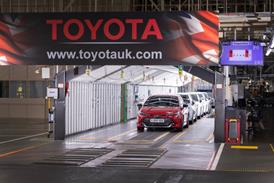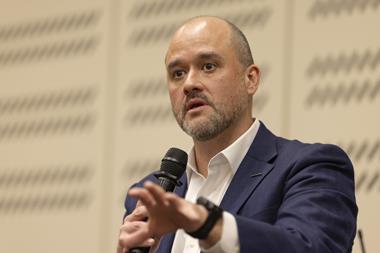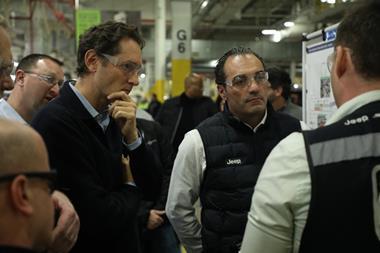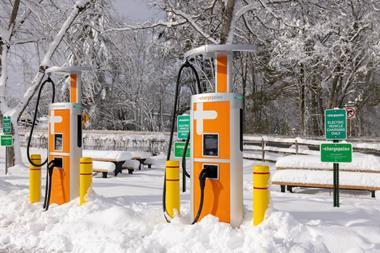
The Russian government has said it will cut import duties on new vehicles to 25% from the existing 30% following its proposed accession to the World Trade Organisation this year, but there is scepticism amongst private operators in the country about what the deal will actually mean for them, as well as recognition that many OEMs are well on the road to increased investment in domestic joint ventures and are encouraging their tier suppliers to follow suit. For some the announcement has come as something of a surprise.
Speaking at a recent conference dedicated to Russia’s proposed membership of the organisation, the country’s chief WTO negotiator, Maxim Medvedkov, added that the duties could be cut to 15% within seven years of the initial reduction.
Russia is the only global economic player that remains outside of the 153 member states comprising the WTO.
The move may be welcomed by LSPs who, last September, expressed concerns about a loss of business when Russia’s prime minister Vladimir Putin said that the government would further raise import tariffs on foreign-produced vehicles to 30%. Likewise, port operators may do better if the Russian government drops the duties and foreign imports receive a boost, but there is wide scepticism amongst logistics providers over how Russia will negotiate with the WTO and, more generally, its ability to play fair, with any dealings described as “opaque by design”.
One source told Automotive Logistics News that the government has not been overly concerned about the plight of independently-owned logistics providers, preferring to concentrate on the welfare of the hundreds of thousands of state employees tied up in creaking state industries.
The increase in tariffs announced last September was designed to promote joint venture production between foreign carmakers and domestic OEMs, as well as encourage the transfer of technology skills and increase productivity. However, certain operators perceive that indigenous OEMs will always be protected as a priority. As Dominik Buszta, research analyst at Frost & Sullivan commented at the time “although increased tariffs aim to support domestic OEMs and to catalyze development of the Russian component industry, inevitably, they will negatively hit foreign, as well as domestic, LSPs. Higher tariffs will result in higher import vehicles prices which will result in weaker demand for new cars.”
Which is why OEMs have set themselves on a road of increased investment in domestic joint venture activity within the country and are unlikely to revert to the level of foreign imports previously moved. And it is this that has made the proposal to suddenly reduce duties suprising for some.
"This information about reducing of import taxes from 30% to 25% is a bit of an unexpected step," said Tomasz Lis, spokesman for Höegh Autoliners in Russia and CIS. "Higher taxes were supposed to bring manufacturers onto Russian soil [and with it] technology and employment. New joint ventures were started to increase volume produced locally, as a way of avoiding high import duties."
Following the tariff increases last year Renault, for one, increased its investment in its Avtoframos facility in the Samara region, and the Lada plant at Togliatti stands to benefit hugely from the technology swap and cash investment tied up with the government’s import strategy.
Elsewhere, Hyundai has pushed ahead with the development of its facility near St Petersburg. The company said that sales of the Kia C1-segment city car, which has been especially designed for Russian consumers, would take up a large portion of its local portfolio as it is one of its fastest expanding segments in Russia.
Foreign OEM ventures like this one, and the increasing joint ventures in the country, have been given five years to set up Russian sources for component supply and have their SKD- and CKD-derived vehicles qualified as of Russian origin. These OEMs are keen to maintain their zero-duty status on parts imports and, given that the proposed cuts will only reduce the tariffs to the already high level they were at prior to last September’s announced rise, the promise of cuts is negligible.
“OEMs are hanging their hat on their tier one and tier two suppliers making the same deal with the Russian government and setting up their manufacturing bases in Russia, and using these as transit sheds,” said another industry source. “All it seems to be doing is pushing the problem down the supply chain and into someone else’s court.”
Membership of the WTO would bring with it the promise of more investment, new technology and other benefits crucial for economic modernisation without making costly demands on foreign carmakers or their logistics providers moving products into the country, but many have already made investments to avoid this so the impact on finished vehicle carriers and logistics providers could be limited. And for some accession would have to be on Russia's terms.
"I would not expect a quick access to WTO, unless on conditions given by the Russian side," said Lis.
The next meeting on Russia's bid is planned for the end of March.











